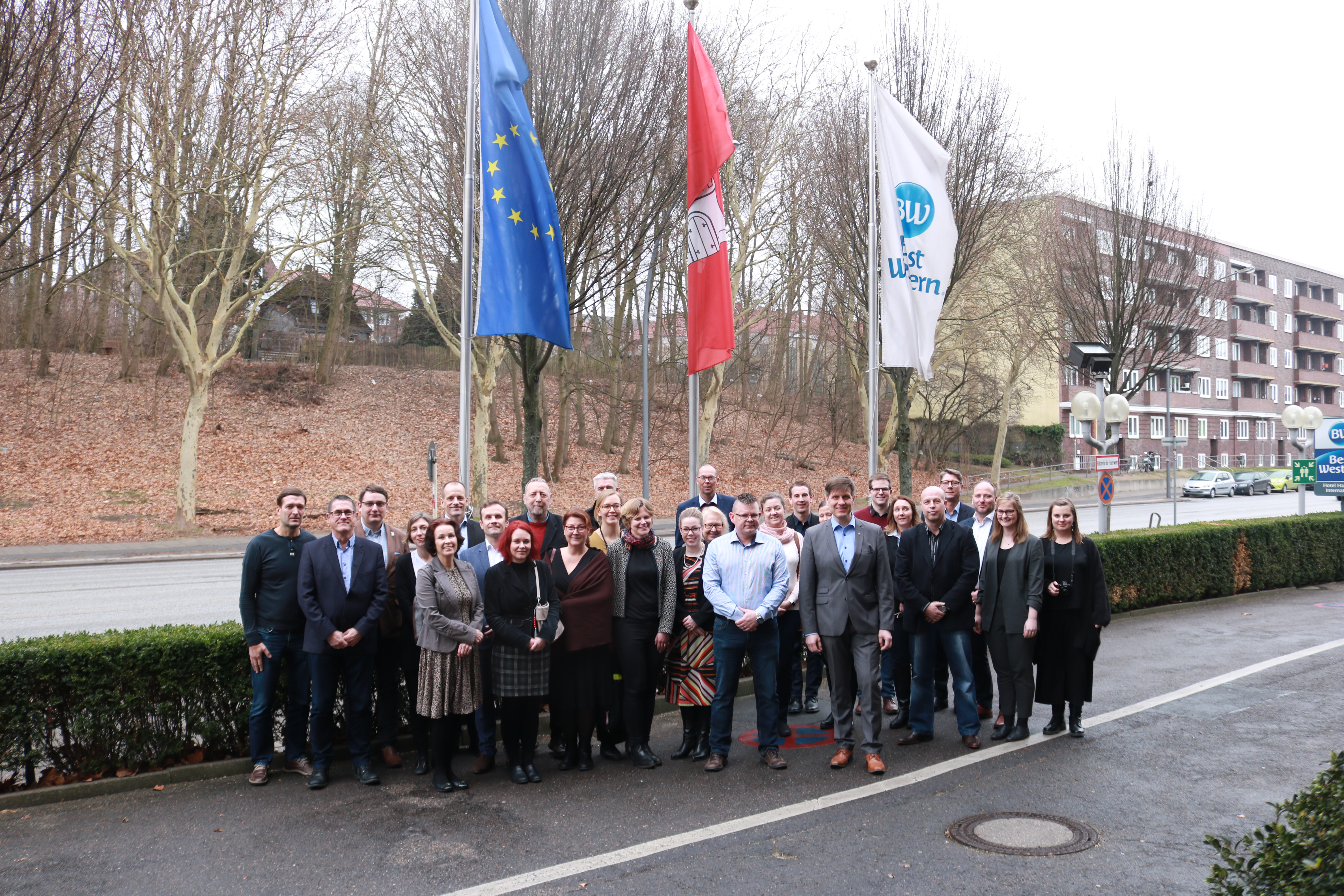New innovative project brings together civil protection specialists and climate change adaptation experts to fight the impacts of climate change. CASCADE targets the need to develop risk assessment methodologies tailor-made for the local level and putting them into practice for more resilient societies.
CASCADE (Community Safety Action for Supporting Climate Adaptation and Development) project kicked off in Hamburg February 5.-7. The meeting was hosted by the Hamburg Fire and Rescue Services.
The objective of the CASCADE is to strengthen the knowledge about risks caused by climate change both macro-regional and city-level.
- As the risks of excessive weather and climate conditions, such as heat waves, forest fires, floods and droughts have increased, climate change is also an emerging security threat. The focus of CASCADE is to increase the practical risk management capability in BSR, says the project manager Miikka Toivonen from the Southwest Finland Emergency Services.
CASCADE will develop a climate change risk assessment methodology, applicable to the Baltic Sea Region. This methodology will be used in training courses for city officials, responsible for civil protection on how to assess and manage the climate change risks.
CASCADE will also strive for initiating a region-wide policy dialogue on the UN Sendai Framework for Disaster Risk Reduction. CASCADE thrives to form cross-sectorial cooperation between different levels of governance and for greater policy coherence on climate risk assessments.
- We are looking forward to the fruitful cross-sectoral cooperation as this type of project has not been in executed in the BSR before. We aim to create positive cascading effects for improved risk reduction as the outcomes and results of the project can be replicated by all BSR countries, Toivonen says.
CASCADE is financed by the EU Civil Protection Mechanism (DG ECHO) and will run for 24 months.
The Partners involved are: Southwest Finland Emergency Services, Union of the Baltic Cities - Sustainable Cities Commission, Council of the Baltic Sea States Secretariat CBSS, MSB Swedish Civil Contingencies Agency, Main School of Fire Services (SGSP) in Poland, Hamburg Fire and Rescue Service (LFS), UBC Safe Cities Commission/ Liepaja Municipal police, Frederiksborg Fire & Rescue Services, Stockholm Environment Institute in Tallinn (SEI Tallinn) and Abo Akademi University/CLL in Finland.
More information will follow soon!
